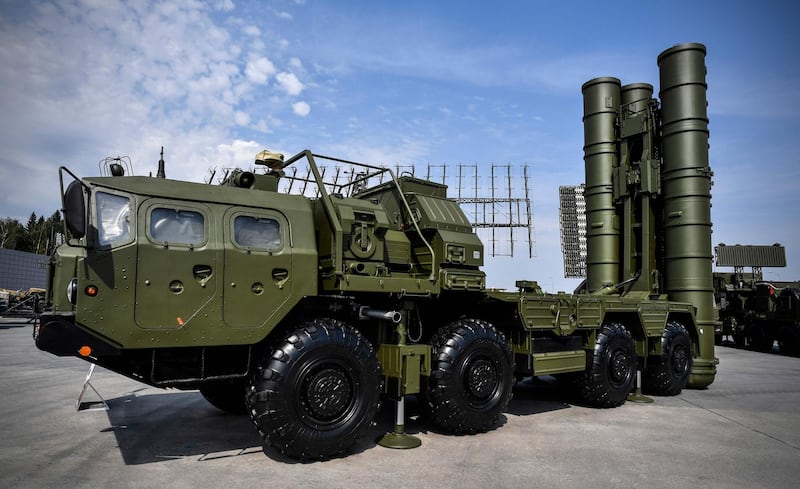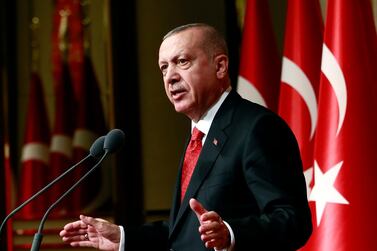President Recep Tayyip Erdogan expects Turkey to receive a new Russia missile system within days, despite US threats to sanction Ankara over the deal.
"Within 10 days, maybe within one week, the first shipment will have arrived," Mr Erdogan was quoted as saying by the Hurriyet newspaper after a meeting with US President Donald Trump at the G20 Summit in Japan this weekend.
The Turkish president’s determination to follow through on the $2.5 billion (Dh9.2bn) deal with Russian President Vladimir Putin has driven a wedge between Nato allies Ankara and Washington. The United States says the Russian missile system is not compatible with other members in the defence alliance and has vowed to impose sanctions if Mr Erdogan goes ahead with the deal.
Turkey has watched as several deadlines set by Washington to purchase the US Patriot missile systems as an alternative have come and gone. Mr Erdogan has repeatedly described the S-400 agreement with Russia as a “done deal”.
US officials are concerned that Russia’s S-400 system will compromise their F-35 fighter jets, which Turkey helps manufacture and also purchases. In an effort to deter Ankara, which appears intent on ploughing ahead with the deal, the United States has said it will impose on Turkey sanctions intended for countries doing business with Russia’s arms industry.
Under the sanctions, Turkey would be removed from the F-35 programme. Already Turkish pilots have had their training on the jet discontinued in the United States. Meanwhile, Turkey sent the first contingent of military personnel to Moscow in May to begin training on the Russian-built S-400 anti-aircraft system.
Over the weekend, however, the sanctions threat seemed to fade. Breaking from the hardline stance coming from US officials in Washington, Mr Trump in Osaka said Turkey had been treated unfairly in the fallout from the missile deal with Moscow. And following bilateral talks, Mr Erdogan said that the US president would not follow through with the sanctions.
"We have heard from him personally that this would not happen," Mr Erdogan said. "We are strategic partners with the United States. As strategic partners, nobody has the right to meddle in Turkey's sovereign rights.
In an interview with the Turkish television network NTV on Monday, Mr Erdogan struck a conciliatory tone, saying the conflict with the United States over the missiles would be resolved. “I believe that we will overcome this process without any problems,” he said, adding that the countries’ defence ministers would “open the doors” to resolving the dispute.
The Kremlin has mostly opted out from the debate while Washington has worked to deter Ankara from going ahead with the deal. In May, however, Russian senator Alexei Pushkov compared Washington’s deadline for Turkey to ditch the Russian deal to “the overlord threatening the vassal.”
Echoing Mr Erdogan’s description of a “done deal,” the Kremlin’s spokesperson Dmitri Peskov has said: "We proceed from this and this deal is being implemented."







